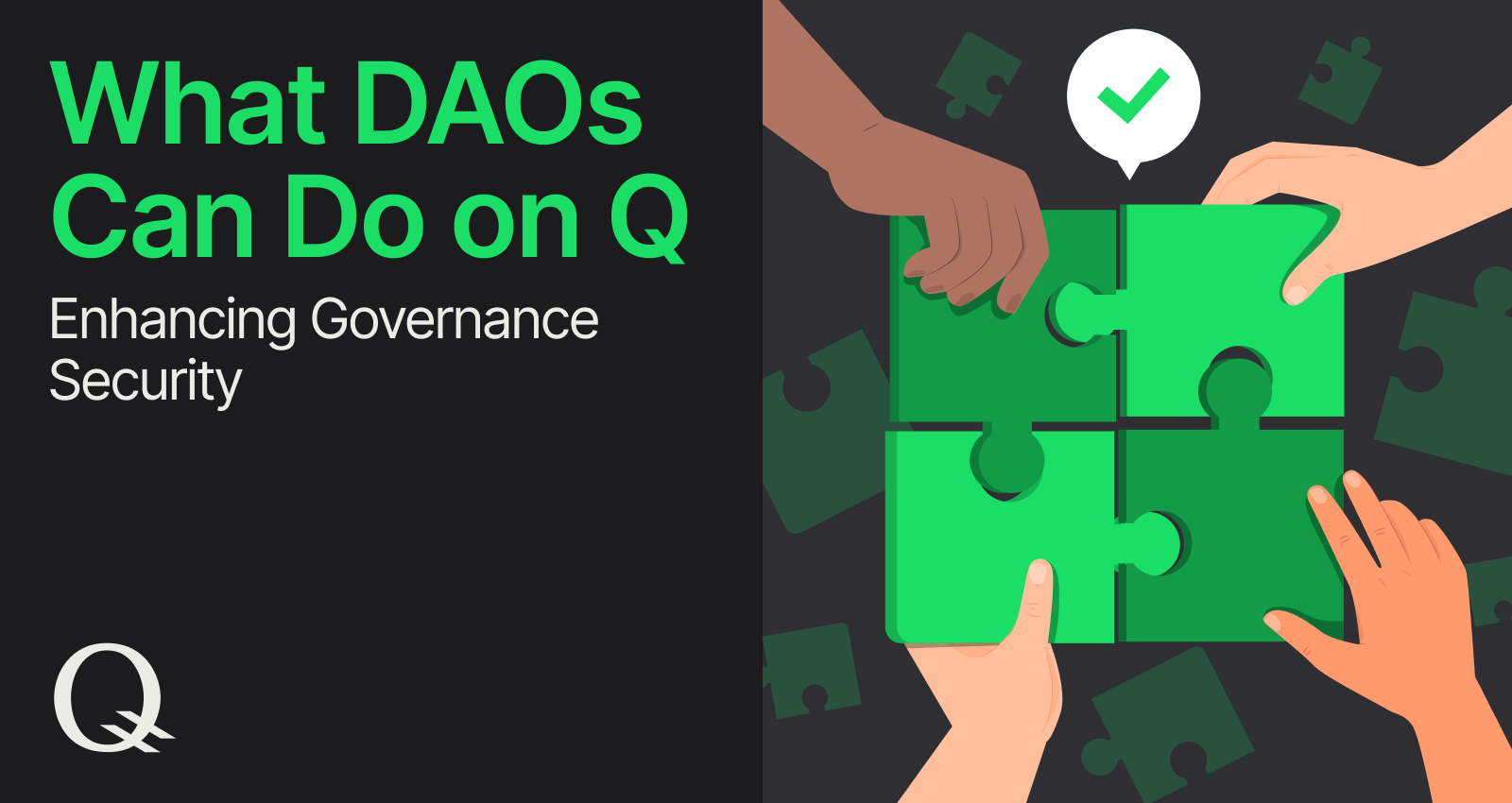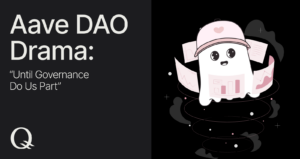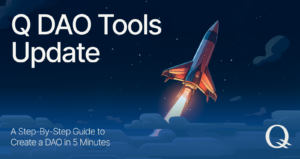DAOs face many challenges during their lifecycle. Based on my previous article about the three pillars of good governance, this piece explores the threat of governance attacks and explains how Q can help DAOs to mitigate the associated risks by enhancing governance security.
The Need for Governance Security
Governance attacks threaten DAOs and can lead to significant financial losses. For example, De.Fi researchers report that 75% of top tokens risk governance attacks, while Chainalysis experts ring the bell about DAOs losing an average of 1M USD per such exploit in 2023. Funny enough, even ChatGPT seems to propose governance attacks as the way to go for exploiting a system.
Centralized decision points and compromised keys pose significant threats beyond financial losses. These issues highlight the need for robust governance structures to protect against direct attack vectors. But beyond those obvious governance vulnerabilities, DAO members often face transparency issues and misplaced trust, leading to frustration, inefficiencies, and a slow but steady erosion of value. Addressing these challenges is crucial for securing DAOs and maintaining their integrity and progress.
A new DAO framework for more secure decentralized governance structures is available on Q Blockchain. Here is how it works.
Empowering DAOs on Q
Stage I: Get the Basics Right: Q’s DAO Factory
To recap my previous article, the three pillars of DAO governance are a Constitution, Expert Panels, and On-chain Voting.
A Constitution provides a sound legal basis and ensures transparency by defining roles and decision-making processes for DAO members.
Expert Panels can be used to leverage specialized knowledge and to structure or represent the DAO. They are an effective tool to avoid decision fatigue among DAO members.
On-chain Voting ensures integrity in decisions, with immutable records making the process transparent and immune to undue influence, upholding fairness in governance.
These pillars collectively fortify DAOs with trust, legal clarity, and democratic decision-making.
The Q DAO Factory supports setting up on-chain voting structures, native role management, and provides a tailored DAO Constitution, ensuring transparency and serving as a foundation for the technical implementation. The Constitution also facilitates access to ICC’s Court of Arbitration via Q’s integrated dispute resolution process.
Stage II: Maintain Decentralization: Deploy Modules
Creating a decentralized community structure and then centralizing power in the hands (or addresses) of a few individuals defies the purpose. Even if those individuals are trusted, compromised keys pose a real danger. That’s why DAOs on Q can use modules to maintain their decentralized operations, avoiding centralized control of keys and hard-coding of permissions. These modules allow for flexible role assignment and shared decision-making, integrating both community and expert input. Modules thus enhance security by minimizing trust assumptions.
Examples of modules that have been applied by DAOs include DeSci Standards DAO’s NFT minting governance module, QNS’s module for code upgrades, and DynastiQue’s module for treasury protection, showcasing the versatility of Q’s DAO modules.
Stage III: Enhance Security: Use Q’s Governance Opt-In Features
The final safeguard for DAOs on Q is the option to use the Q Protocol’s governance opt-in features. These provide DAOs with an external anchor for governance security, ensuring effective enforcement of the DAO’s own rules and minority protection against governance exploits.
This involves setting clear decision-making processes with defined guardrails and limitations. The service includes oversight mechanisms, allowing Q Root Nodes to veto decisions that are not in compliance with the defined guardrails and limitations. This ensures independence from internal DAO dynamics and prevents malicious attempts to capture the DAO’s governance from being executed. Detailed in Q’s Constitution, which is regularly being updated and improved, this external oversight offers a robust defense against governance attacks, setting a new standard for DAOs.
Good governance, the cornerstone of value creation across industries, is vital for the longevity and success of Web3 projects. Q’s shared governance security model offer projects enhanced protection, resilience, and support for decentralization.
Start building on Q
To summarize, Get the Basics Right: establish transparency and democratic decision-making through a well-defined Constitution, Expert Panels, and On-chain Voting. Maintain Decentralization: utilize modules to prevent centralization of control and enable flexible role assignment and shared decision-making. Use Q’s governance opt-in features: implement external oversight mechanisms to safeguard against governance attacks, enforced through Q’s governance-as-a-service model.
There are already 100+ DAOs deployed on Q – you can join a thriving and supportive DAO ecosystem.
Addressing governance attacks requires more than just technical solutions; it necessitates a blend of on-chain structures and human oversight. You can easily launch and manage your DAO using Q DAO tools. But irrespective of the DAO framework that you use, Q offers solutions to improve DAO governance security, enabling DAOs to adapt and grow in the face of evolving challenges.
DAOs and DAO operators interested in building on Q can launch a DAO right away, or reach out for guidance and support in the setup.






Leave a Reply